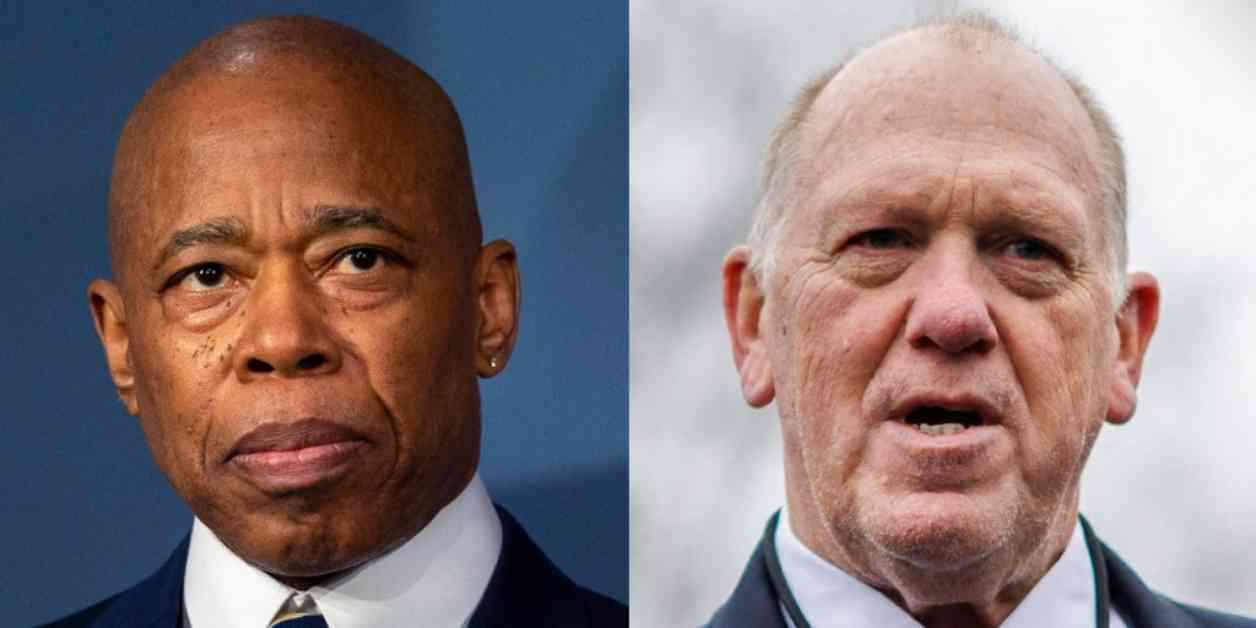White House Border Czar Denies Quid Pro Quo Allegations
White House border czar, Tom Homan, has vehemently refuted claims of a quid pro quo agreement between the Trump administration and New York Mayor Eric Adams. The allegations suggested that the Justice Department dropped criminal charges against Adams in exchange for the mayor’s cooperation on immigration—a notion Homan dismissed as “ridiculous.”
In a recent interview with CNN anchor Dana Bash, Homan addressed the accusations, emphasizing that discussions about access to Rikers Island jail had been ongoing for months and were not tied to any favors in return for dropping charges. The meeting between Homan and Adams resulted in an agreement to allow U.S. Immigration and Customs Enforcement (ICE) agents to operate at Rikers, a development that has sparked controversy and speculation.
The Denial and Defense
During a closed-door meeting last Thursday, Adams and Homan reached an agreement regarding ICE operations at Rikers. This agreement was followed by a joint appearance on “Fox & Friends,” where Homan expressed his commitment to holding Adams accountable for his promises. Homan’s strong stance on enforcement and collaboration was evident as he underscored his role as a law enforcement officer.
Homan, a former acting ICE director under President Trump, emphasized the nature of his discussions with Adams as being “cop to cop.” He dismissed the allegations of favoritism or improper dealings, stressing that their focus was on addressing illegal alien crime in New York City and identifying high-priority cases. The relationship between Homan and Adams was characterized by mutual respect and a shared commitment to public safety.
The Fallout and Resignations
The Justice Department’s decision to dismiss corruption charges against Adams has sparked internal turmoil, leading to a series of resignations within the department. At least seven DOJ officials, including top federal prosecutor Danielle R. Sassoon, have stepped down in protest over the handling of Adams’ case. Acting Deputy Attorney General Emil Bove’s directive to drop the charges raised concerns about political interference and the integrity of the legal process.
Sassoon, a former clerk for Justice Scalia, outlined her objections in a scathing memo to Attorney General Pam Bondi, highlighting the pressure from Adams’ legal team to secure a dismissal. The alleged quid pro quo discussions during a meeting on January 31 raised ethical concerns and prompted Sassoon’s decision to resign. The complexity of the case and its implications for law enforcement cooperation have cast a shadow over the administration’s priorities and transparency.
The ongoing legal saga involving Adams, a former police captain turned mayor, has underscored the challenges of balancing political accountability with law enforcement integrity. As Adams prepares for re-election in November, the lingering questions surrounding the dismissed charges and the implications of the agreement with Homan continue to fuel debate and scrutiny. The intersection of politics, law enforcement, and public service reflects the complexities of governance and the demands of upholding justice.
Raquel Coronell Uribe, a dedicated breaking news reporter, captured the unfolding developments in the controversy surrounding the quid pro quo allegations. Tom Winter, Ken Dilanian, and Ryan J. Reilly’s contributions added depth and context to the evolving narrative, shedding light on the intricacies of power dynamics and accountability in the public sphere. The ongoing scrutiny and fallout from the allegations serve as a reminder of the importance of transparency and ethical conduct in governance and law enforcement.


